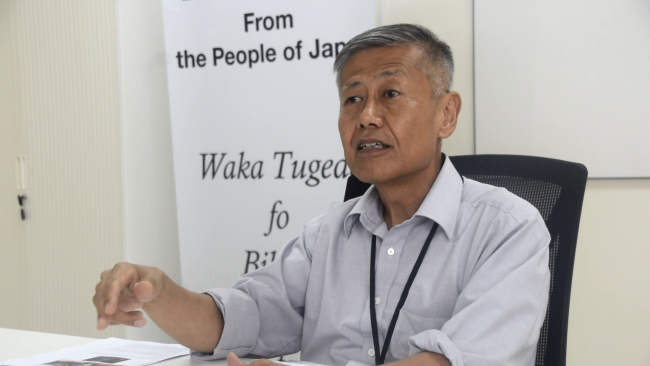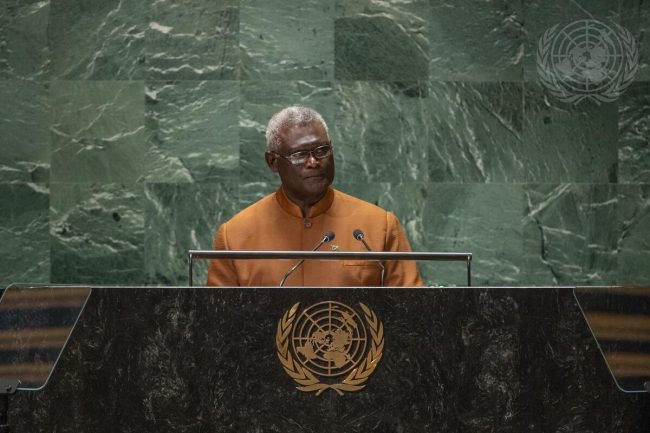Japanese Embassy concerned over PM Sogavare’s UNGA statement condemning action to discharge treated nuclear water into the Pacific Ocean
The Japanese Embassy in Honiara has conveyed its concern over Prime Minister Manasseh Sogavare’s statement at the United Nations General Assembly (UNGA), condemning Japan’s action to discharge treated nuclear wastewater into the Pacific Ocean.
Speaking at a media conference in Honiara, Japanese Ambassador, Miwa Yoshiaki said, the Embassy has explained the scientific details of the discharge to the Prime Minister prior to commencing the discharge process.
“We are disappointed by this statement because we have explained our position many times already,” he said.

Japanese Ambassador to Solomon Islands His Excellency Yoshiaki Miwa
According to Ambassador Yoshiaki, this is the first time Japanese authorities have heard a strong message from the Solomon Islands Government under their bilateral framework.
Mr Yoshiaki added the Japanese Embassy welcomes any dialogue with the Solomon Islands Government.
“Prime Minister Sogavare can summon me at any time. But I have never been summoned by him, I have only asked for appointments to explain my position,” he emphasized.
He further explained, maintaining cordial bilateral relations between Japan and Solomon Islands is within both countries’ interests.
The Japanese Embassy wishes to uphold transparent and open communication with the Government as the discharge process continues.
Meanwhile, responding to Prime Minister Sogavare’s statement during the Debate of the 78th Session of the UNGA in New York, Permanent Representative of Japan to the UN, Ambassador Shino Mitsuko said Japan’s Government is taking measures to strictly abide by relevant international law while considering international practice during the discharge process.

Prime Minister Manasseh Sogavare delivering Solomon Islands address at the 78th UNGA | Photo: Prime Minister’s Press Secretariat
According to Ambassador Mitsuko, the Japanese Government will not allow the discharge of purified nuclear wastewater into the ocean which could potentially endanger the marine environment and human health.
He added that monitoring conducted by the Japanese Government and TEPCO have not found any anomalies since the discharge started on 24th August 2023.
END///
By Andea Maáhanua
